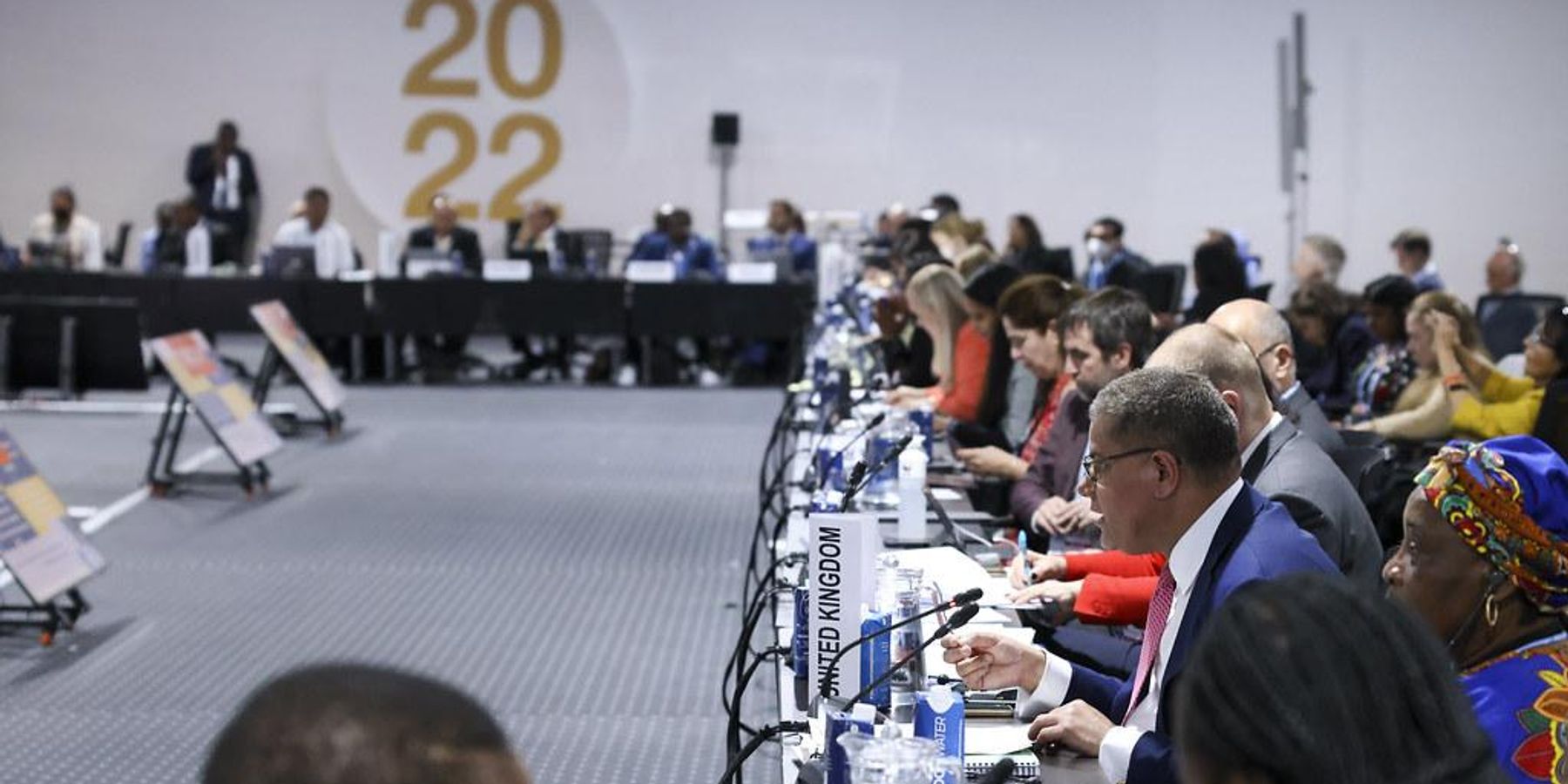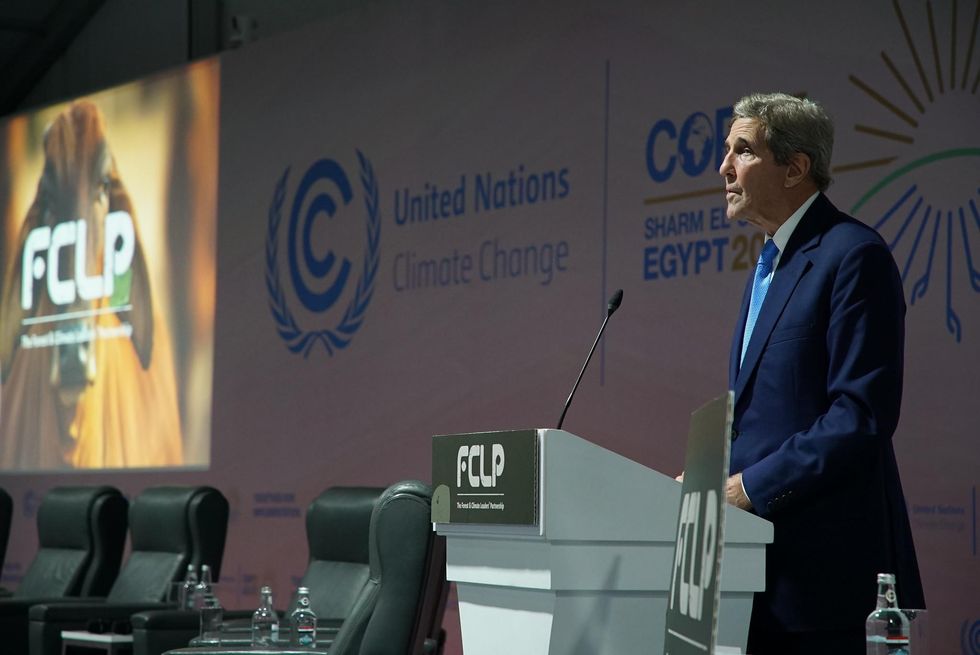
Op-ed: It’s time to re-think the United Nations’ COP climate negotiations
Instead of focusing on negotiations, let the main event be information sharing, financing and partnerships that produce faster technological change.
When you work on climate change, cognitive dissonance is a daily experience. I recently visited West Virginia to bask in the glorious colors of fall.
All seemed right with the world — normal in a way that can make one forget the existential crises humming along in the background.
I felt the same jarring disconnect as I watched the now concluded Conference of the Parties (COP) to the United Nations’ Framework Convention on Climate Change (UNFCCC).
The people trying to hammer out solutions to this vexing global challenge are serious individuals who care deeply. Some have spent entire careers moving from venue to venue, making their best efforts to find a pathway toward a safer world. The negotiations are sober and sincere.
The cognitive dissonance arises because they have nothing to offer that matches the severity of the problem.
Carbon emissions might have been worse without this annual attention, but it’s hard to escape that the current pathway is essentially business as usual.
What is the return on value of almost 30 years of meetings? We’ve seen record-breaking increases in global average atmospheric carbon dioxide and little progress toward concrete support for poor countries that suffer the most from the climate’s radical changes, though they contributed the least to the destruction.
It might be time to strip away the parts of this annual ritual that have value and jettison the rest.
Climate accords built on mutual trust

John Kerry, U.S. Special Presidential Envoy for Climate, speaking at the Forests and Climate Leaders’ Partnership event, part of COP27 in Sharm El-Sheikh. November 7, 2022.
Credit: COP26
The international process has produced breakthroughs. The 2015 Paris Agreement rejected conventional thinking to recognize that each country must find its own way to lower its emissions with steadily more ambitious targets. Its innovation was acknowledging that by working together, each pushing the other to improve, countries could collectively build the momentum toward progress.
Then came the Trump years. Progress as envisioned in Paris requires mutual trust. Trump’s withdrawal from the Paris Climate Accord delivered a gut-punch reminder that agreements are not just about signatures on a page.
Post-Trump, President Biden recommitted to the accord and brought back John Kerry, who had built the coalition for the Paris success. But even Kerry’s credibility on the world stage can’t erase the doubts made tangible by Trump’s destructive behavior.
Years of talk
On one side of the ledger, the COP is an annual platform for the countries that stand to lose the most from mounting emissions. For two weeks, at least, they can make their case on a public stage.
On the other, the meetings have made those with genuine claims into supplicants. For decades, they brought their case to the streets and the side events. The remedies they propose, like taxing fossil fuel companies’ profits, are out of step with political reality. Their concerns finally became central this year, but the answer they got was, as characterized by David Wallace-Wells, a shell, “vague on all of the important points: who will pay into the fund and how much, who will distribute that money and to whom.”
The credibility of the COP is eroded by years of failure to meet commitments, with many wrong turns and the perception of slow bureaucracy.
And the unstated objective of wealthier countries appears to be to maintain their current lifestyle, only by changing the source of the energy that powers it from fossil fuels to more benign inputs. While efficiency has improved, the U.S. and similar countries continue as wasteful energy consumers. The West doesn’t seem to want to make the kind of changes that might cause a little discomfort, much less pain.
Making the side events the main event
With limited progress toward the root mission of lowering greenhouse emissions, it’s time to rethink COP.
Most of the good news on climate comes from technological developments: the plummeting price and wider availability of solar; advances in wind; improved efficiency.
This suggests shifting from formal negotiations to a consultative platform that facilitates information sharing, financing and partnerships that might produce faster technological change. This would draw on the strongest parts of the meeting process, making the side events into the main event.
The hallway conversations are more concrete, informative and realistic than the negotiations. For example, the New York Times highlighted how entrepreneurs came together at the World Economic Forum’s Global Shapers program to develop the Waterplan software that helps companies facilitate water resource planning. This model could be strengthened at COP.
Annual COP climate talks have also become a magnet for financiers backing the development of energy-efficient technologies. Regular meetings with that focus could broker partnerships that might not happen otherwise.
A redesigned COP could also be a place for high-level, off-the-record conversations. Leaders need to meet, but maybe the current model is too formal. Although Copenhagen in 2009 is considered in much of the environmental community to have been a failure, Barack Obama used his time to have unscripted conversations and infuse a sense of urgency. Admittedly, unplanned discussions with heads of state are an outlier. But climate has shifted over time to what is now an ongoing crisis.
More frequent if less formal meetings might better meet the urgency of a developing crisis, more akin to generals planning a constantly shifting war. And why not hold these meetings where the impacts on poorer populations can be more readily grasped — out in the field, so to speak.
One piece of the current process that works well is the critically important work of the IPCC, the independent scientific body founded under the auspices of the World Meteorological Organization and the U.N, Environment Programme. The IPCC is independent of the COP, but it provides the increasingly blunt, comprehensive and credible assessment reports used by UNFCC, policymakers and a world audience. These reports are widely seen as the most reliable sources of scientific information on desertification, land degradation, sustainable land management, food security and greenhouse gas fluxes in terrestrial ecosystems. Even the deeply conservative U.S. state of Louisiana used IPCC data to prepare its highly acclaimed Coastal Commission Report.
A benefit of redesign would be to free the UNFCCC itself from the need for annual conference planning and allow it to be more opportunistic in the best sense, to focus instead on unexpected possibilities of achievement.
Real climate opportunities
Asking whether we should reimagine this convoluted international process will not win me friends in the environmental community. I am aware that raising these questions can be misinterpreted by climate deniers and opponents of collective world action.
But not asking the question is equally dangerous, committing us to thinking that repeating the same routine year after year will somehow lead to a better result.
The real issue is whether we will assure a minimally habitable world for our children and their children. If the pathway involves stripping down to the essentials to identify real opportunities of change, so be it.
Ruth Greenspan Bell is a Public Policy Fellow at the Woodrow Wilson International Center for Scholars.













